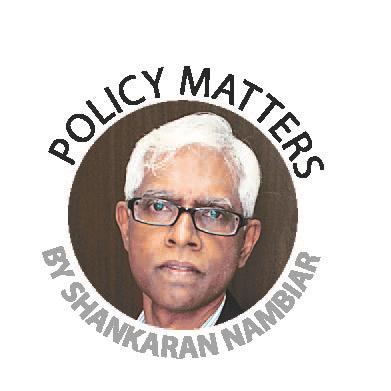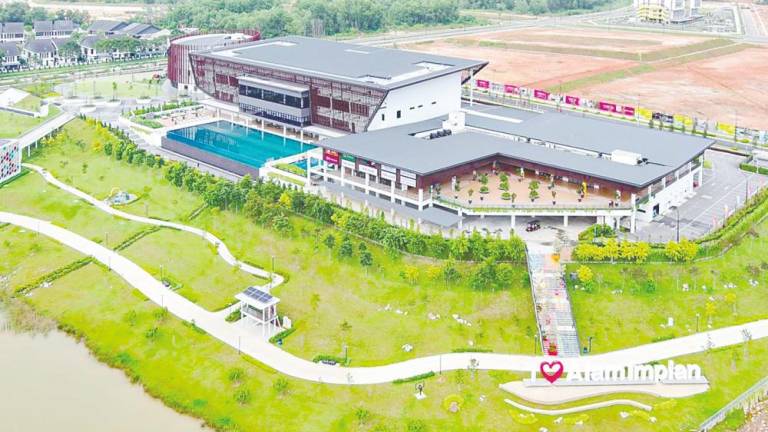THIS year has been exciting, punctuated with the shock of a discontinuity coming from the victory of Pakatan Harapan (PH). The orthodoxy that ruled the country for 61 years was unseated for the first time on May 9, 2018.
Moving back a bit, the economy was on rough ground in 2016 in terms of the GDP growth rate (4.2%).
It has since been on the mend, in so far as the GDP was rising fast enough. Annual growth rates have been increasing subsequent to the 2008 crisis, reaching a high of 6% in 2014.
In terms of the size of the GDP and growth rates, there was not a lot of reason for dissatisfaction.
Consistent and satisfactory as the growth rates were, other gnawing issues troubled the people. Some of these included the festering 1MDB problem, the rising cost of living, high household debt and the high rate of public debt.
Above all, what mattered most was the prevailing sense of disillusionment because people felt they were not participating in the country’s growth.
Propelled by a long list of other grievances, ranging from claims on former prime minister Datuk Seri Najib Razak’s wife’s spending habits, to the perceived sell-out to China, Barisan Nasional lost GE14.
Having won the elections, the new government, headed by Tun Dr Mahathir Mohamad, has before it the onerous task of meeting the people’s aspirations.
In response to this dizzying mandate, the government of the day has made some policy reversals and repackaged other policies.
The basis for some of the new government’s actions was premised on the huge debts that burdened the country.
Finance Minister Lim Guan Eng deviated from international guidelines in reporting by redefining national debt to include federal government debt, contingent liabilities and lease payments for public-private projects.
With this accounting approach, Malaysia was found to have debts in excess of RM1 trillion.
It is debatable if a redefinition was necessary and if it gives a more accurate picture of the nation’s economic position.
One of the first moves that Mahathir made was to reverse the decision on some big ticket infrastructure items.
Two projects were cancelled: the RM55 billion East Coast Rail Link and the RM9 billion Multi-Product Pipeline and Trans-Sabah Gas Pipeline.
One was undertaken by China Communications and Construction Company and the other by China Petroleum Pipeline Bureau.
The High Speed Rail that was supposed to have connected Kuala Lumpur and Singapore was put on hold until 2020.
The pullback was a bold but necessary act in view of the inflated price that Malaysia would have otherwise been saddled with.
Another abrupt policy intervention was the retraction of the goods and services tax (GST) and having it replaced with the sales and service tax (SST).
This decision was prompted by the desire to honour PH’s election manifesto which included the promise to do away with the GST.
The GST was thought to have been the cause of the high cost of living.
This need not have been necessarily true. Rather the manner of implementation of the GST and exercise of anti-competitive forces during the previous regime may have led to price increases; these could have led to seeming flaws in the policy rather than the conceptual inadequacy of the GST.
The removal of the GST left the Ministry of Finance grappling with another problem: how would it deal with the shortfall in government revenue which was estimated at RM20 billion.
The question of insufficient sources of tax revenue was a source of speculation prior to the announcement of the Budget 2019.
With the high public debt and the constraint on tax revenue, there was concern that the government would go on a tax collection rampage. There was anxiety that taxes on inheritance and capital gains would be introduced.
Budget 2019 quelled those fears. The budget turned out to be a sensible one, for most part; it surely got the larger picture right.
And, what was the larger picture?
Doubtlessly, it is necessary to raise enough government revenue.
At the same time the following constraints have to be taken into account: a weakening external environment, the need to boost domestic consumption and the people’s expectations.
This mix demanded a more flexible budget, one that is at least mildly expansionary, and one that takes into account the stark reality of the coming year.
The Ministry of Finance deftly executed a budget that suited the bill.
The government went in for a budget with a deficit of 3.7% of gross domestic product. It also retained the scheme of cash grants for the underprivileged with some modifications.
In essence the Ministry of Finance did not want an austere budget that would bring the economy to a grinding slowdown, especially given a gloomy external environment that is expected to emerge in 2019.
There had to be sufficient support to boost domestic demand and Budget 2019 did that. Viewed from the private sector perspective, it was a satisfactory budget since it provided some incentives for the small and medium enterprise sector.
Does all of this give some sense of the direction the economy is going to take? Does it give some idea of how the economy will be driven by the government?
One can expect that in the next year, there is going to be more attention to keeping government expenditure trim and on encouraging domestic demand.
Most of the focus will be on ways in which domestic demand can be boosted.
One can also expect to see concrete steps being taken to encourage domestic investment. Measures to tap from new sources of growth will slowly unfold, perhaps later in 2019.
It is likely that Bank Negara Malaysia will keep the interest rate at present levels since there is a need to encourage investment and also because official inflation figures do not show any reason to worry.
As the novelty of a new government fades, the people’s expectations will increase, and that, I suppose, is what might get the government into thinking really hard on how to put the country on the growth trajectory.
Dr Shankaran Nambiar is a senior research fellow at the Malaysian Institute of Economic Research. The views expressed in this article are his personal views.Comments: letters@thesundaily.com
















